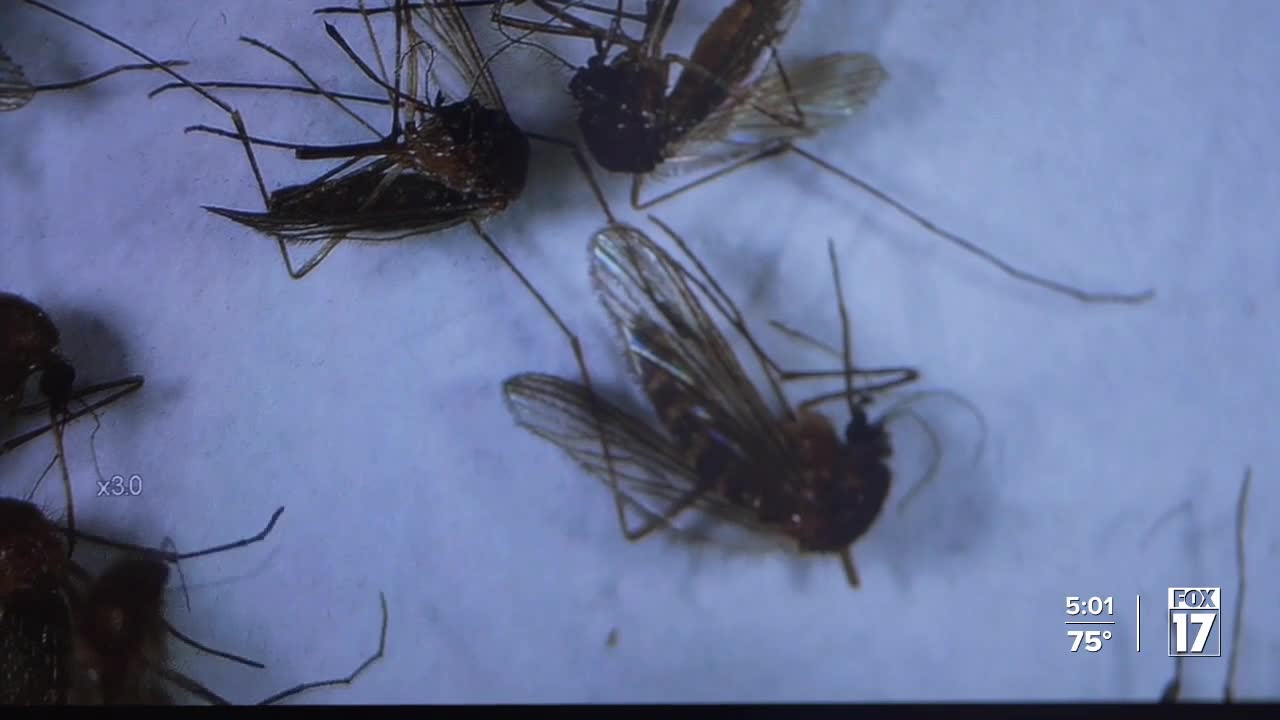GRAND RAPIDS, Mich. — The first human case of West Nile virus in Kent County this season has resulted in a death.
On Thursday, the Kent County Health Department (KCHD) announced that an adult with underlying health conditions had passed away after contracting the disease.
The person lived less than a mile from a recent positive detection of West Nile virus.
In July, the health department confirmed the presence of the disease in three mosquito samples, each collected from a different ZIP code in the county: 49507 (Grand Rapids), 49544 (Walker), and 49525 (Plainfield Township).
The department said privacy concerns prevented them from identifying the specific ZIP code in which the infected individual lived.
"I think there should be a significant concern for West Nile virus, especially in Kent County, now that we have a positive case and someone who's passed away," KCHD Program Supervisor for Communicable Disease Cathy Armstrong said.
READ MORE: Person in Kent County dies from West Nile Virus

In most cases, people who contract West Nile virus are not symptomatic, so Armstrong says it's likely that others in Kent County are currently, unknowingly carrying the disease. Still, those with mosquito bites shouldn't feel the need to call the doctor unless they have a fever, headache, body aches or a rash. In rare cases, the central nervous system may also be affected.
"We don't want people to be scared to go outside, especially at dusk and dawn. We want people enjoying live their lives, just take the proper precautions to keep themselves safe," she said.
This summer has been "ideal" for the mosquito species that most commonly carries West Nile virus, says KCHD's environmental health director.
"The mosquito that primarily carries West Nile virus is called the Culex mosquito," Sara Simmonds said. "That mosquito likes hot, dry weather for breeding, so there have been ideal conditions."
During the summer, Simmonds and other health department workers set three different types of traps at various locations around the county and collect mosquitoes from them twice a week. They then sort the small flies by species and gender and send them to the Michigan Department of Health and Human Services for further testing to determine if they are carrying a virus.
These collections will continue through late September.

In order to protect yourself from West Nile virus, Simmonds says you should...
- Apply an EPA-approved mosquito repellent, preferably one with 10-35% DEET
- Wear long sleeves and pants
- Avoid outdoor activity at dawn and dusk
- Drain standing water on your property (gutters, pots, kiddie pools)
- Maintain screens






